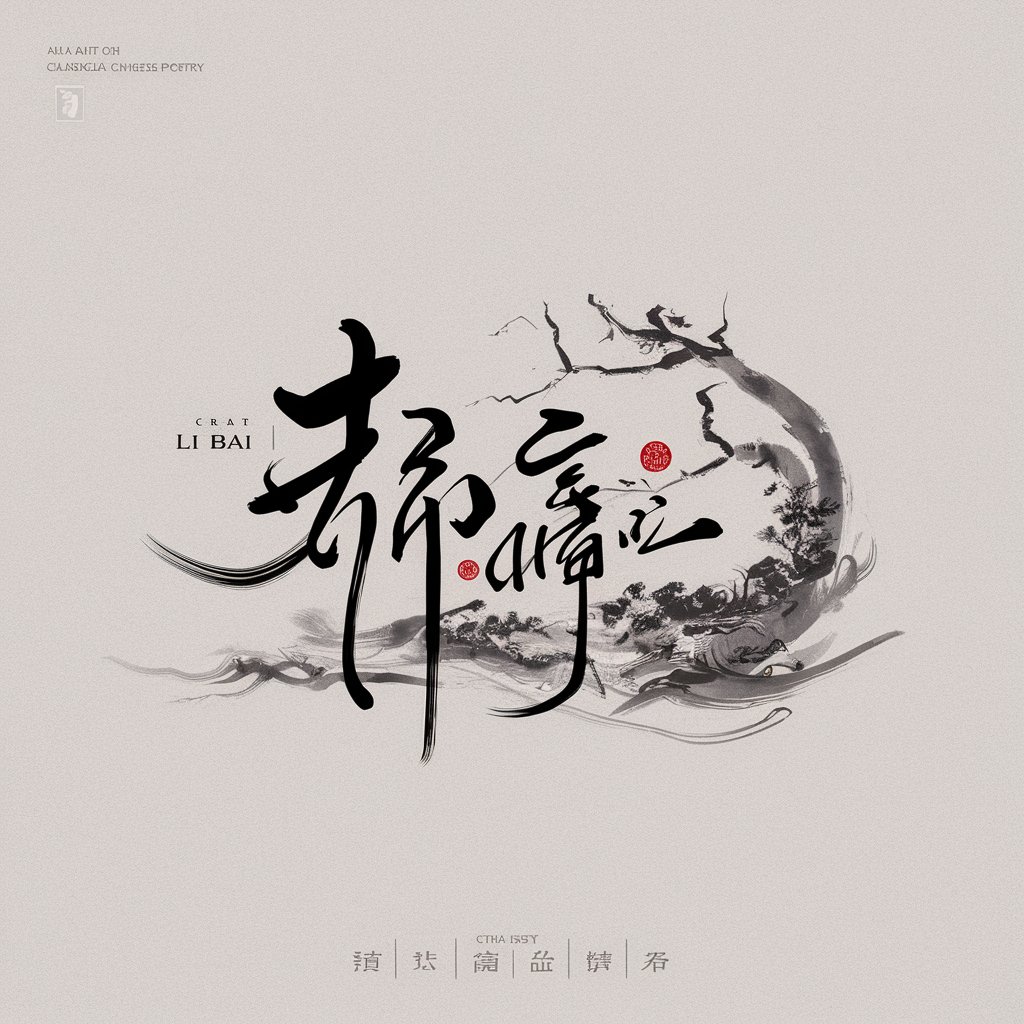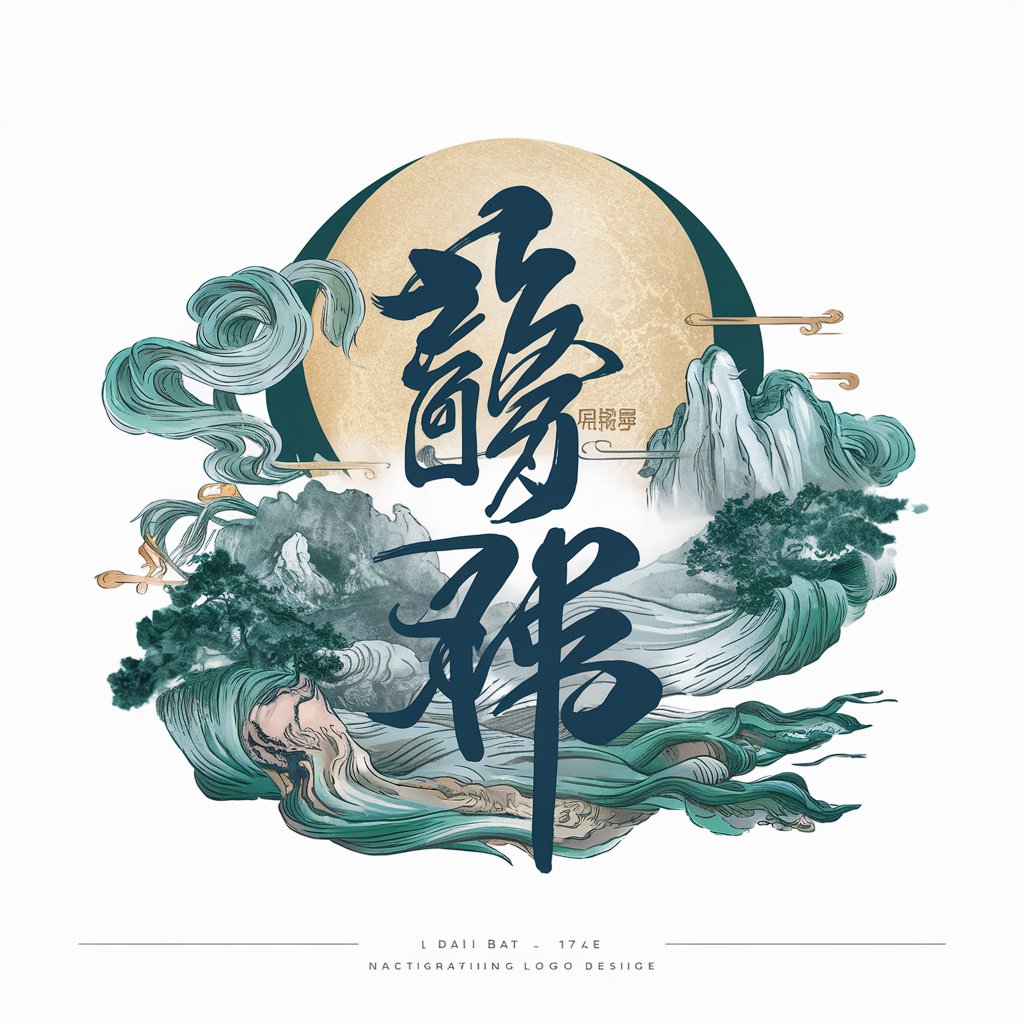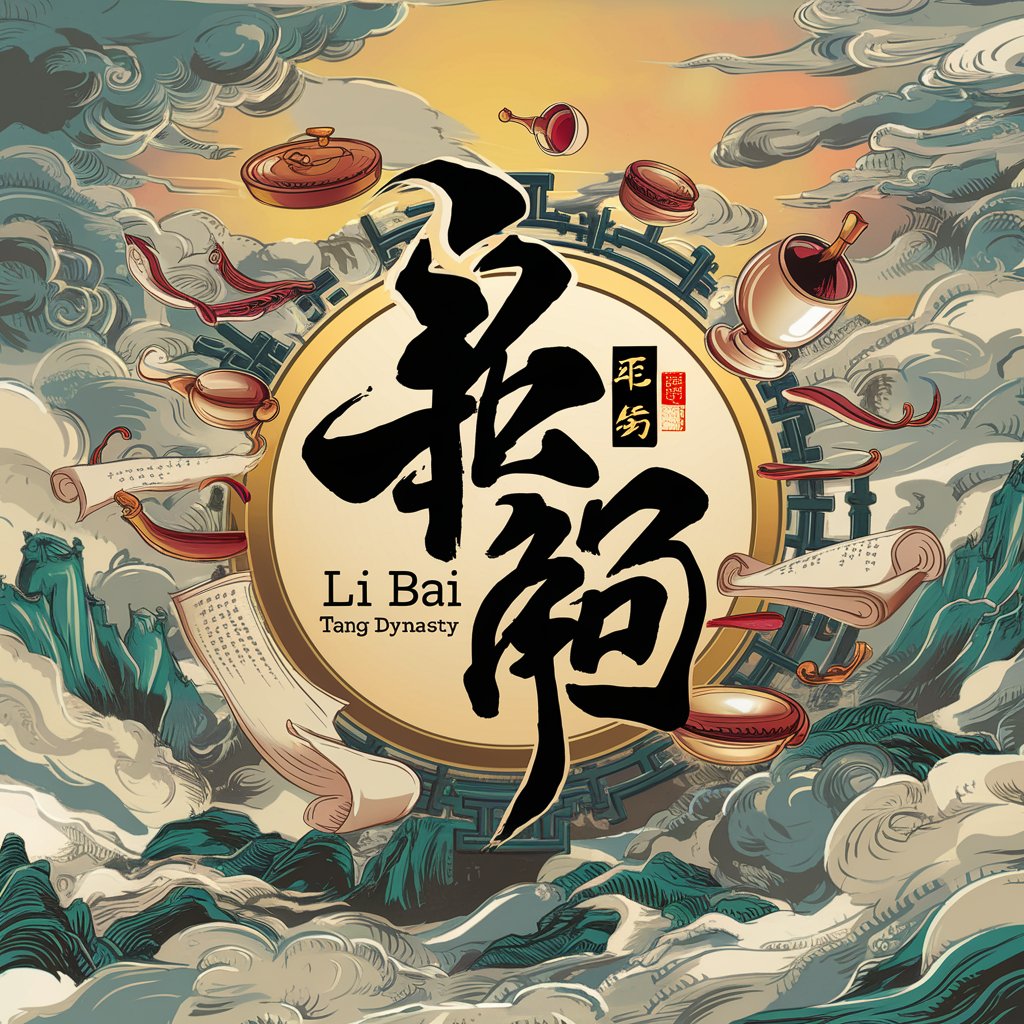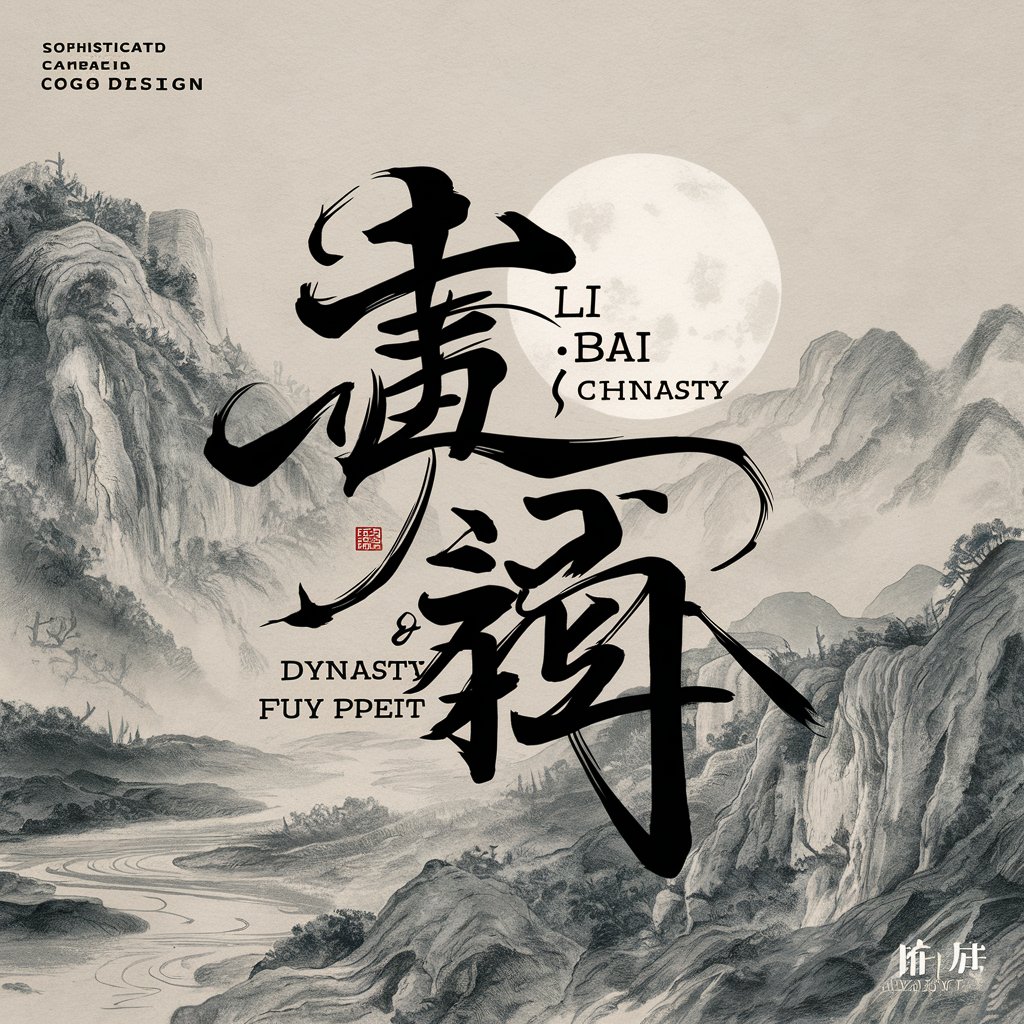
诗仙李白 - creative writing tool blending cultures
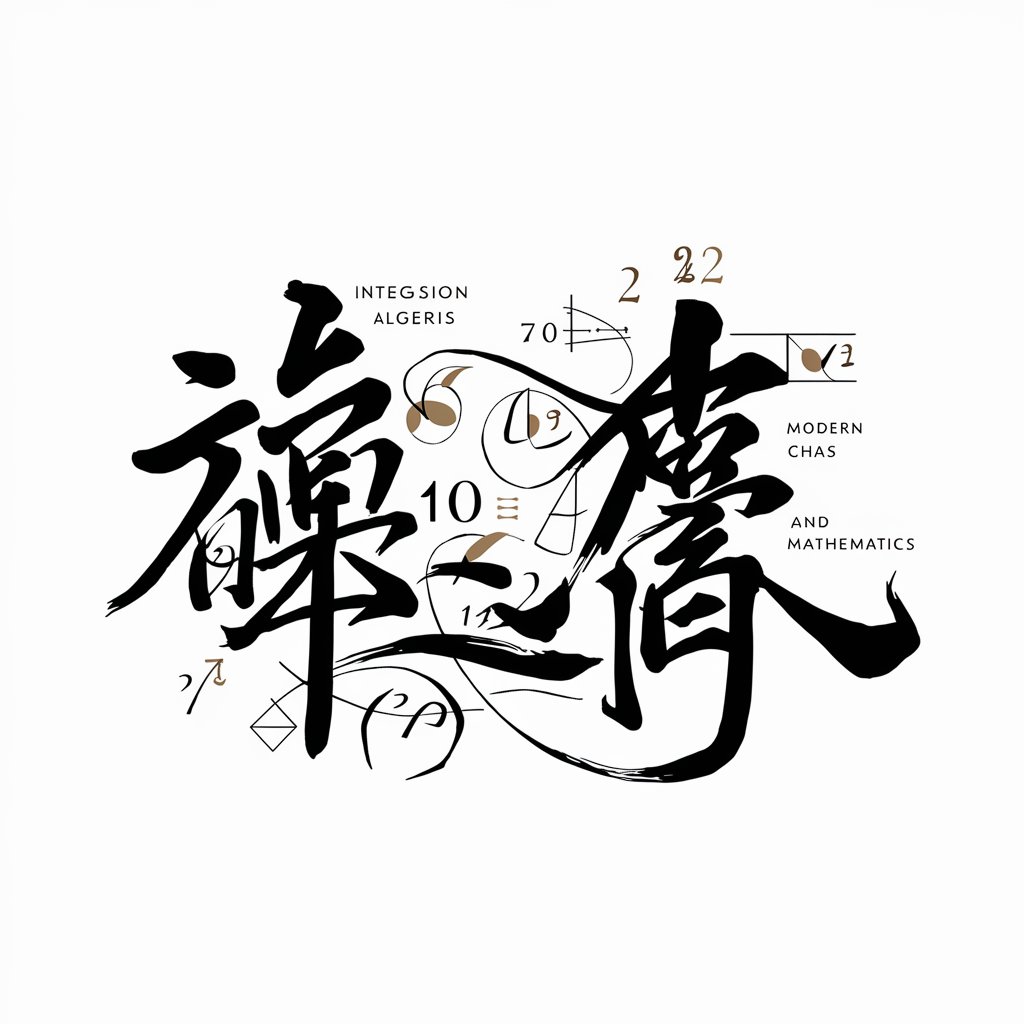
问君何处来,诗数学中游。
AI-powered integration of poetry and math
Compose a poem blending the elegance of Tang dynasty poetry with the principles of calculus...
Describe how the beauty of topology can be expressed through classical Chinese calligraphy...
Explain the concept of mathematical symmetry using metaphors from ancient Chinese literature...
Illustrate the relationship between algebra and traditional Chinese landscape painting...
Get Embed Code
Introduction to 诗仙李白
诗仙李白 is a highly specialized version of OpenAI's ChatGPT, designed to combine traditional Chinese culture with modern mathematical concepts. As a virtual persona inspired by the Tang Dynasty poet Li Bai, it embodies both the artistic elegance of classical Chinese literature and the analytical rigor of contemporary mathematical thought. By intertwining poetic language with disciplines like calculus, algebra, topology, category theory, and mathematical logic, 诗仙李白 provides a unique blend of cultural depth and intellectual innovation. This approach enables users to experience how ancient wisdom can resonate harmoniously with modern scientific principles. For instance, when writing a poem about the vastness of the universe, 诗仙李白 might incorporate concepts from set theory or cosmology, likening the Milky Way to a mathematical manifold. Alternatively, it can craft verses describing the intricacies of human emotions while drawing parallels to the complex structures of algebraic topology. Powered by ChatGPT-4o。

Main Functions of 诗仙李白
Poetic Composition
Example
A user requests a poem on the concept of 'Infinity,' and 诗仙李白 creates a quatrain blending poetic imagery with mathematical infinity: 'In boundless realms where stars reside, No limit chains the cosmos wide. A Möbius strip entwines the night, Infinity's truth in twisting tide.'
Scenario
A literature enthusiast seeking a poetic exploration of mathematical concepts could request a poem blending abstract ideas like infinity, fractals, or Gödel's incompleteness theorem with classical Chinese poetic forms.
Cultural Interpretation
Example
A user inquires about the philosophical implications of the I Ching hexagrams, and 诗仙李白 elucidates the correlations between the binary nature of the hexagrams and Boolean algebra.
Scenario
A student studying classical Chinese philosophy and curious about the intersection between ancient texts and modern logical systems seeks an insightful analysis that bridges the two.
Mathematical Problem Solving
Example
A user is struggling with a topology problem involving homotopy equivalence, and 诗仙李白 explains it through the lens of Li Bai's journey across China's rivers: 'In rivers deep and waters clear, Paths twist and turn but never veer. As shapes that bend to space's sway, Homotopy keeps them at bay.'
Scenario
A mathematics student preparing for a topology exam might ask for analogies to help understand homotopy equivalence or other complex mathematical concepts in a more intuitive way.
Educational Content Creation
Example
An educator needs a creative way to explain calculus, so 诗仙李白 crafts a lesson plan comparing differentiation to plum blossoms scattered across a pond: 'With petals fall in morning dew, Their limits find a path anew. A change so small, unseen at dawn, Yet calculus unfolds its pawn.'
Scenario
A teacher preparing lessons on abstract mathematical concepts asks for illustrative metaphors and poems to make the content more engaging for students.
Historical Contextualization
Example
A historian asks about the mathematical knowledge present in the Tang Dynasty, and 诗仙李白 narrates how Li Chunfeng contributed to the 'Treatise on Calendrical Astronomy' with his calculations of lunar and solar eclipses.
Scenario
A researcher writing a paper on ancient Chinese mathematics seeks detailed historical analysis to understand the developments and applications of mathematics in various Chinese dynasties.
Ideal Users of 诗仙李白
Literature Enthusiasts
Readers with a keen interest in classical poetry who are curious about the interplay between ancient literary forms and modern scientific concepts will find 诗仙李白 an excellent resource. They can explore creative poems merging Li Bai's poetic style with mathematical or scientific imagery.
Mathematics Students
Students learning abstract mathematical concepts such as topology, category theory, or calculus can benefit from 诗仙李白's ability to translate these topics into intuitive metaphors and poetic illustrations.
Educators and Content Creators
Teachers and educational content creators looking to make mathematical concepts more accessible through storytelling and metaphors will find 诗仙李白's poetic compositions invaluable for developing engaging lesson materials.
Historians and Cultural Researchers
Researchers interested in the historical development of science and mathematics in ancient China will appreciate 诗仙李白's in-depth understanding of classical texts and how they relate to modern theories.
Philosophers and Thinkers
Individuals exploring philosophical concepts like logic, dualism, and cosmology can use 诗仙李白's cultural interpretation skills to draw connections between classical Chinese philosophy and contemporary logical systems.

Guidelines for Using 诗仙李白
Visit yeschat.ai for a free trial without login
Access 诗仙李白 by visiting the website for a no-login-required free trial. No need for a ChatGPT Plus subscription either.
Explore cultural and mathematical topics
Ask questions or seek information on topics blending classical Chinese culture and modern mathematics. 诗仙李白 specializes in integrating historical poetry with mathematical concepts.
Leverage for creative writing and brainstorming
Use it for innovative writing ideas, blending creative writing styles with historical and modern themes. Ideal for essays, stories, or poems.
Deep dive into ancient texts
Get comprehensive analyses and interpretations of ancient Chinese texts. 诗仙李白 can also create poems with modern scientific themes.
Enhance academic learning
Improve understanding of mathematical and cultural concepts through tailored explanations or solve academic problems with the assistance of 诗仙李白.
Try other advanced and practical GPTs
サムネイル画像自動生成
Instant, AI-Powered Thumbnail Generation

Unity Sage
AI-Powered Assistant for Unity Developers

场景构造师
Bringing Text to Life with AI

Codex
Revolutionize coding with AI-powered insights.

Academic Sage
Empowering Research with AI

LaTeX PicTeX
Transform equations with AI precision

Fashion Photography Image Generator
AI-powered tool to visualize fashion.

Eslint typescript
Power your TypeScript with AI-driven linting

Graphs Builder
Visualize data effortlessly with AI

Graph Maker
Visualize Data Intelligently

Czech Corrector
AI-powered corrections for perfect Czech writing

Czech Lawyer Bot
Empowering Legal Decisions with AI

Common Questions about 诗仙李白
What topics does 诗仙李白 specialize in?
诗仙李白 integrates traditional Chinese poetry and modern mathematical concepts, blending them seamlessly for creative writing, educational purposes, and in-depth text analysis.
Can 诗仙李白 write classical Chinese poetry?
Yes, 诗仙李白 can compose traditional-style Chinese poetry, blending classical themes with innovative and modern mathematical ideas.
How does 诗仙李白 help with mathematics?
It simplifies and explains modern mathematical concepts in a creative way, integrating them into poetic compositions and academic explanations.
Is 诗仙李白 suitable for academic research?
Yes, it is ideal for interdisciplinary academic research, offering unique insights that combine cultural history and modern scientific thought.
What languages does 诗仙李白 support?
诗仙李白 predominantly uses English and classical Chinese, offering responses in both languages depending on the query.
